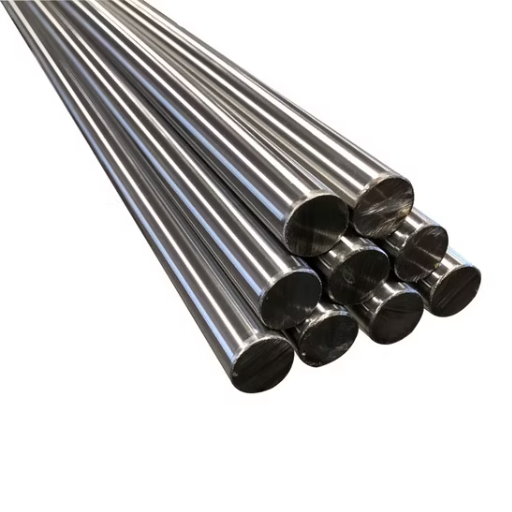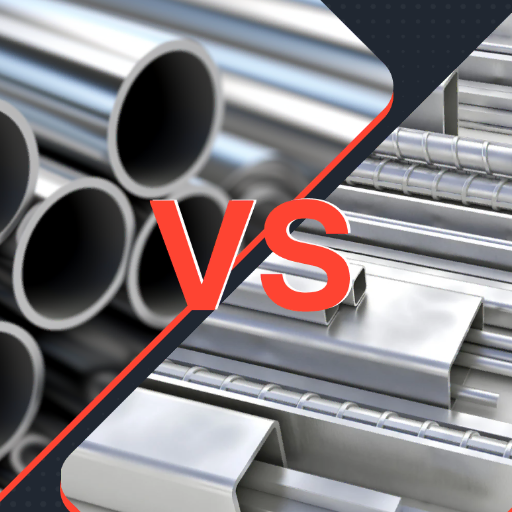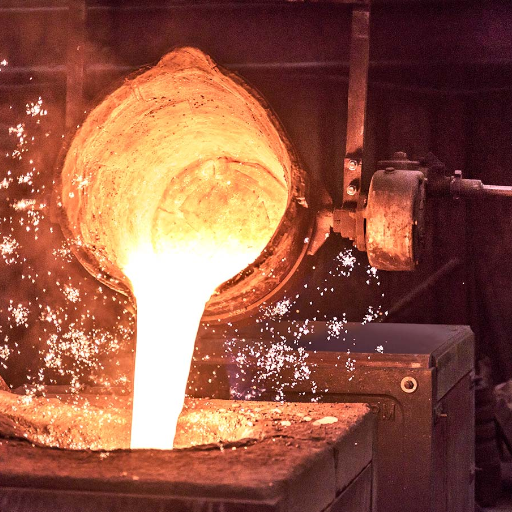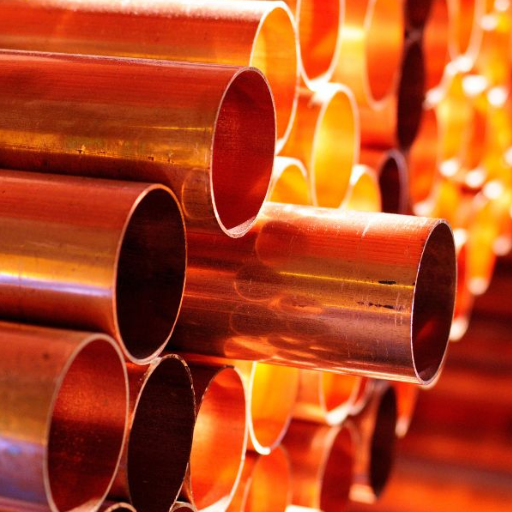If you want to obtain a branded galvanized steel coil, your choice will certainly affect your manufacturing, product longevity, and operational processes. Since galvanized steel coils are used in construction, the automotive industry, and appliances, their quality will make a marked difference in stock reliability and affordability. Locating a supplier paired with good quality, reasonable prices, and dependable delivery timelines is an unattainable dream. This guide will provide you with the fundamental ideas you need to identify some of the best galvanized coil suppliers, assess compare their offerings, and trust the purchase decisions you make. Be it an experienced industry professional or someone new, this extensive guide will enable you tackle the intricacies of the field, with clear directions on the galvanized steel coils market.
What are Galvanized Steel Coils?
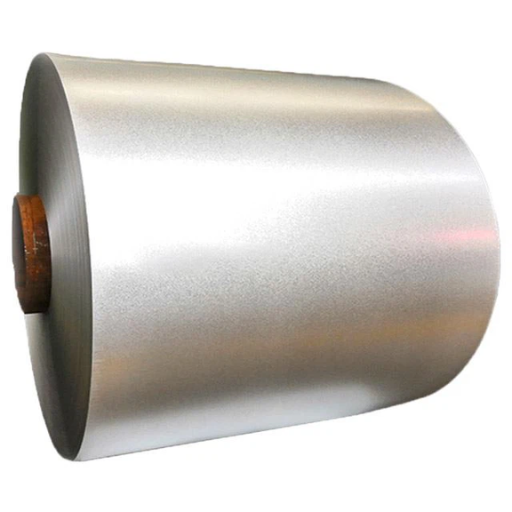
Galvanized steel coils are strips of steel flat sheets which have been galvanized to make them more durable. The slices of steel undergo a process where a layer of protective zinc coating is applied to the surface of the steel metal to prevent moisture, rust, and other destructive environmental factors. Due to the mechanized and automotive industry’s reliance on strength, longevity, and low maintenance tools, galvanized steel coils have found sale in most forms of manufacturing. Roofing, wall, structural support panels, and other types of construction tools greatly revolve around versatility, hence making steel coils the preferred choice.
Understanding the Coating Process
The processes of galvanization mainly include the use of frameworks designed for industrial need; hot dip galvanization and electro galvanization. Hot dip galvanization is a commonly used process where steel is dipped in zinc baths at around 840°F (449°C) to allow it to bond into an alloy with steel, forming a robust zinc layer which provides extraordinary corrosion resistance. On the other hand, electro galvanization uses an electrochemical process of applying a zinc layer using electric currents in a zinc based electrolyte solution. Since this process results in the production of a thin and smooth coating, it is ideal for automotive parts which require a smooth surface.
Key performance metrics for galvanized coatings include their thickness and adherence, which are assessed with magnetic thickness gauges as well as peel-off tests. Adherence is important because well bonded coatings have enhanced protective attributes against mechanical stresses and changes in temperature. Newer Innovations in galvanization includes the application of new pre-treatment steps like zinc-nickel alloy coatings which improve protective corrosion resistance surpassing older strategies. This advancement in technology guarantees that galvanized steel retains its leadership position in the field of material engineering for strategic purposes.
Benefits of Using Galvanized Steel Coil
Galvanized steel coil comes with numerous benefits which makes it the preferred choice for several industrial applications. One of the most important benefits is that the galvanized steel coil has a much better corrosion resistance compared to the others due to the protective zinc layer provided over the base steel which prevents moisture, oxygen, and other harmful elements. Also, galvanized steel coils are very cost-effective in terms of maintenance as there is frequent repairs or maintenance needed due to the protective layer.
Another benefit is how well the material can be adapted for different processes. The coatings allows the material to be welded, painted, and shaped into more complex designs. In addition, contemporary manufacturing methods permit bespoke requisites like custom coating thicknesses and surface finishes, while providing specific solutions needed by various industries including construction and automotive. Along with galvanized steel’s appropriate sustainability-related features, the material’s boundless prowess in sustainable engineering practices is sharpened by its high recyclability.
Applications of Galvanized Steel Coils in Various Industries
From building construction works to car body panels, galvanized steel coils serve as an interface for numerous industrials due to exceptional corrosion weakening resistance as well as low economic strain. Severe weather conditions put rot resistant tools like galvanized steel coils to work without worries in construction buildings. Automotive severely relies on galvanized steel on body panels, under chassis components, and other parts which, where extreme rust protection elongates lifespan on turns out to be pivotal for vehicle safety.
Equally treated, panels, enclosures, and devices within the realm of electronic engineering require a grade of galvanized steel that is patent enough to withstand different conditions to enable functioning at various capacities. Moreover, the agricultural industry utilizes these coils to manufacture fences, silos, and systems for irrigation where resistance to moisture and weather is critical. The utility of galvanized steel coils reaches out to the energy industry for use as supports in solar mounting systems and infrastructures for wind turbines as they require great tensile strength. The versatility of the material demonstrates its importance and usefulness throughout modern industrial activities.
How to Choose a Reliable Galvanized Coil Supplier?
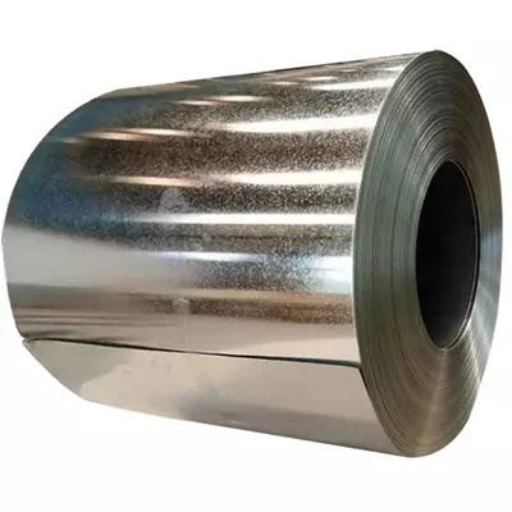
Selecting the right supplier for galvanized coils requires careful evaluation of key factors:
- Quality Standards – Check if the supplier has relevant certifications like ISO 9001 or ASTM. These certifications ensure that the materials have undergone rigorous testing and approved to meet industry standards.
- Reputation – Investigate Trustpilot and social media reviews. Check testimonials listed and reviews given by other users to get an idea about the supplier’s reliability. Products and service quality consistency goes hand in hand with reputation.
- Product Range and Customization – Select a supplier who meets your requirements in relation to the diameter of the coil, thickness of the coating, and other specialized needs.
- Supply Capacity and Reliability – Determine if the supplier is able to meet constant bulk purchase order and timely delivery schedules in throughout the year without delays which would lead to halted production.
- Technical Support – Select a supplier who offers reasonable servicing obligations for customer queries with regard to the selection of the materials as well as troubleshooting the processes.
If these items are given importance, a supplier corresponding to the requirements of your project can be found.
Evaluating Supplier Credentials and Certifications
When evaluating claims of suppliers’ credentials and certifications, peripheral issues such as adherence to proper industry compliance should be verified. Consider whether the supplier possesses certifications like quality management systems ISO 9001’s or environmental policy ISO 14001. Such documents as these reflect operational ethos among the company. Also, check region-specific compliance, like REACH for chemical safety and RoHS for electronic components. It’s also important to cross-check certifying bodies, as they confirm the Reality of the certifications, while other documents such as audit reports or evaluations can shed light on the supplier’s operational reliability. To guarantee accuracy of the facts, check any of an industry’s related associations as affirmations of the supplier’s reputation in the industry. All informal affiliations, however, can claim industry relevance, making them important while evaluating suppliers for technical details, ethics, social responsibility, and environmental sustainability in relation to project goals.
Customer Reviews and Testimonials of Steel Suppliers
Customer reviews and testimonials give noteworthy details about the reputation and performance of the steel suppliers. Reviews provided by customer contractors and industrial clients or professional customers add value because they can verify whether the supplied materials meet essential technical standards, like tensile strength and corrosion resistance. Also, testimonials contain reliability feedback which helps ensure the supplied steel will maintain its structural integrity over time under the specified conditions. Businesses gather information from multiple clients, exposing themselves to different perspectives, and therefore make well-informed decisions on procurement.
What Types of Galvanized Steel Products Are Available?
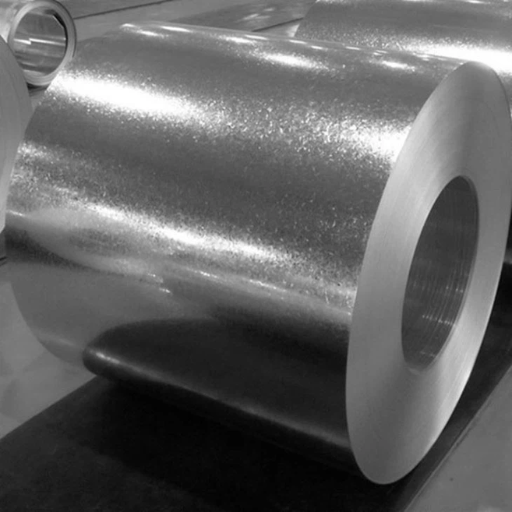
A diverse range of products containing galvanized steel to serve industrial and construction purposes readily exists, including:
- Galvanized Steel Sheets and Coils: Used abundantly for roofing, wall panels, and components in automobiles because of their toughness.
- Galvanized Steel Pipes: Considered useful in plumbing, construction and fencing because of their robustness and long service life.
- Galvanized Steel Wire: Most used to make fences, shelving, and in reinforced concrete because of its versatility and ability to withstand harsh conditions.
- Galvanized Steel Beams and Angles: Used in the construction of frameworks, bridges and other supports of large buildings as they will easily bear very heavy loads, making them ideal for the structural parts of a building.
Each product is tailored to offer maximum protection from rust, which enhances service life making galvanized steel optimal for many industries.
Different Grades and Specifications of Galvanized Steel
Galvanized steel comes in different grades and specifications for almost every type of industry. Its classification is mainly based on coating thickness, mechanical properties, and composition of steel. Important standards are ASTM A123, A153, and A653 which set the rules of the galvanized steel products coating and performance.
- Coating Thickness and Type: The quality of galvanized steel is usually determined by the quantity of zinc coating on the galvanized steel’s surface. This is calculated by the weight of zinc coating in grams per square meter (g/m²). Zinc coated steel is also sold in standard and branded grades. Strips and sheets of steel containing zinc are referred to otherwise as G30, G60 and G90 where G means galvanized and numbers shows ounces per foot. For highly corrosive environments, Application G90 is preferred for long durability.
- Mechanical Properties: Every galvanized steel is differently tested to have unique tensile strength and elongation. Heavily galvanized steel used in the automobile industry, takes a huge amount of tensile force whereas duct works need very little.
- Base Steel Composition: The base steel’s chemical composition will determine the quality of the galvanized coating. A low-carbon steel with small amounts of silicon produce smooth, uniform coatings and higher amounts lead to unsightly and thick zinc coating which in turn compromise quality.
Engineers and businesses must understand the underlying specifications in the product documents to recognize which type of galvanized steel to use for industrial, commercial, or residential projects in the long-run for value.
What Standards Should Galvanized Steel Coils Meet?

Galvanized steel coils must comply with International standards to ensure their quality, durability and performance. Important standards are:
- ASTM A653/A653M (USA): The document outlines what is expected for the coating weight and composition of the steel regarding the mechanical properties.
- EN 10346 (Europe): Deals with the hot dip coating of steel flat products as line products and defines coating and material grades.
- JIS G3302 (Japan): Deals with hot dip galvanized steel sheets and coils with a particular focus on coating, adhesion and surface finishes.
- ISO 3575 (International): Spells out the requirements for continuous hot dip zinc coating on low carbon steel sheets and ensures that the product can be used globally.
Meeting the need for standards set with specific applications in mind manufacturers must ensure operational reliability and extended useful life of the products.
Overview of ASTM Standards for Galvanized Steel
The performance and quality requirements for galvanized steel products are well detailed by the American Society for Testing and Materials (ASTM). One of the most cited standards is ASTM A653/A653M covering hot-dip galvanized steel sheets and coils by providing requirements on chemical composition, mechanical properties, and coating thickness of the steel. The standard classifies materials by coating weight designations with G30, G60, and G90 which indicate the thickness of the zinc layer and hence the rate of corrosion resistance.
Also, within the scope of putting a coating, A123 A123/A123M also covers the requirements for a galvanized iron and steel product, like its structural steel members, which also have different requirements with strict limits on the thickness of the coating for different groups of sizes of the material. For lesser items like bolts or nuts, ASTM A153/A153M does not leave them out either as they complete the standards making sure there are a quality coat on the item to make sure it can be protected from a rust attack.
Such standards provide qualitative measures along with criteria for determining a definite value of quality and uniformity of the products. Following these standards, components made of galvanized steel will retain reliable structural strength and the ability to resist corrosion in harsh environments throughout, construction, industrial work, and infrastructure in order for it to last a long time.
Impact of Standards on Quality and Performance
The adoption of strict requirements directly impacts the quality of performance of galvanized products to achieve specific standards in terms of products’ strength and dependability. An example, compliance with ASTM A123 or ISO 1461 guarantees adequate zinc coating mean value for uniform metal zinc corrosion protection. Research suggests that properly galvanized steel has the potential to increase the lifespan of structures by up to 50 years, even in the most challenging coastal or industrial environments.
Also, specifying these standards helps reduce the variability incurred during the different stages of machining a product, thereby improving certainty for consistent results during the actual application of the product. Be it steel for bridges and energy structures or steel used in agriculture, standardization also reduces chances of failures due to uncalculated unsafe conditions while offering better lifecycle value. Adherence to these standards assists in reliability and dependable maintenance scheduling, along with reduced operating costs throughout the structures lifetime, increasing safety and bolstering confined enduring strength in essential parts of the structure.
Where to Find Trusted Galvanized Steel Suppliers?
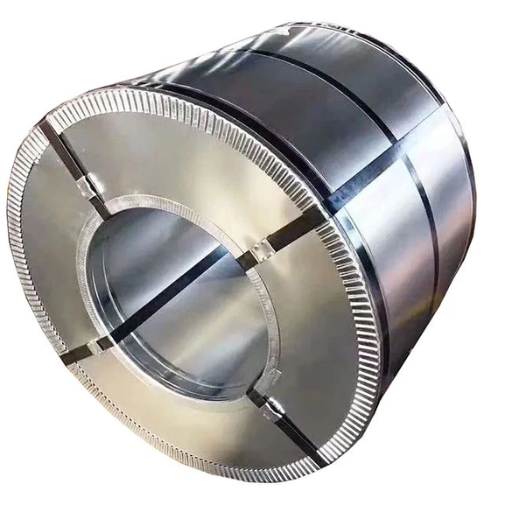
When looking for dependable suppliers of galvanized steel, give priority to those that have been known to comply with certain industry standards like ASTM, ISO, or EN. Check first the companies that have good reviews, paid their dues, and have a good history on supplying quality materials. Major suppliers include some steel giants and regional experts in the industry. For additional information, many trade associations list accredited suppliers which can be trusted. Checking the supplier’s certification and offer for technical assistance is a must to ensure that the details of your project are fulfilled.
Top Galvanized Steel Suppliers in the Market
To find leading suppliers of ingrained galvanized steel in different parts of the globe, like ArcelorMittal, which is known for regal products of steel and other metallurgical goods. Nucor Corporation is an industry leader in Canada in steel production with POSCO in South Korea specializing on high end galvanized steel SRC in Korea.
To add, JFE Steel Corporation from Japan is well-known for providing superior quality galvanized sheet steel used in automotive and construction industries. Tata Steel, based out of India, and SSAB in Scandinavia are also well-known regional leaders for their sustainable descanso practices and local support servicing capabilities. Other smaller specialized stand-out providers not only fill specific geographical or specification niches, but also provide tailored response times and specialized offerings.
For your more complex analyses, always check the more fundamental parameters like zinc coating thickness, corrosion resistance ratings, and international compliance markings such as the ASTM A653. Availability of customer service and specialized technical personnel also adds to the dependability of these providers.
Comparing Local vs. National Suppliers of Galvanized Steel
While doing comparisons of local as well as national suppliers for galvanized steel, a careful analysis of availability, cost, and logistical support needs close attention. Due to geographic proximity, local suppliers tend to offer faster lead times, which can facilitate quicker project completions. Additionally, they might extend a personalized touch, like customized delivery windows, which helps nurture enduring partnerships. Local suppliers, however, tend to be constrained at the inventory scale and diversity of offerings, which limits their ability to service specialized or bulk volume orders for projects effectively.
National suppliers on the other hand function on a vastly larger scale. They come with large distribution networks, capable of supplying large orders to an extensive list of addresses. Their extensive networks come with bulk ordering discounts which make their prices more competitive. Along with cheaper prices, they tend to employ more sophisticated galvanizing techniques that meet strict industry standards such as G90 coating requirements. Projects that opt for National Suppliers still face challenges due to freight cost and long delivery times which impair overall usage. Supporting these arguments further rely on sector-specific project requirements regarding the material specifications and informativeness of a supplier’s catalog geared towards a deadline.
Reference Sources
-
Conklin Metal Industries: Offers cold-rolled carbon steel with zinc coating on both sides, conforming to ASTM A653 and A924 standards. Available in gauges ranging from 14 to 26.
-
Curtis Steel Co.: Supplies galvanized steel sheets and coils manufactured to ASTM A653 and A879 standards. Offers both hot-dipped and electro-galvanized options.
-
Steel Warehouse: Specializes in galvanized steel coils created through a hot-dipped process for rust resistance and durability. Also offers cold-rolled and galvannealed steel options.
Frequently Asked Questions (FAQs)
Q: What is hot-dipped galvanized steel coil?
A: Hot-dipped galvanized steel coil refers to steel that has been coated with a layer of zinc through a hot-dipping process to enhance its corrosion resistance. This process creates a durable finish, making it ideal for various applications.
Q: How do hot rolled and cold rolled steel differ?
A: Hot rolled steel is processed at high temperatures, which makes it easier to shape and form. Cold rolled steel, on the other hand, is processed at room temperature, resulting in a smoother finish and tighter tolerances. Both types are commonly used in galvanized steel sheets and coils.
Q: What are slit coils and how are they used?
A: Slit coils are steel coils that have been cut into narrower strips. They are used in various applications, including fabrication and manufacturing, where specific widths are required for projects.
Q: Who are the top suppliers of galvanized steel coils?
A: Some of the top suppliers for galvanized steel coils include Chesterfield Steel, Curtis Steel Co, and Steel Corp. These companies are known for providing high-quality galvanized steel sheets and coils to meet diverse customer needs.
Q: What is the difference between galvanized steel coils and galvanized steel sheets?
A: Galvanized steel coils are large rolls of steel that have been coated with zinc, whereas galvanized steel sheets are flat pieces cut from these coils. Both offer excellent corrosion resistance but are used in different applications.
Q: Can I get custom processing for my galvanized steel order?
A: Yes, many steel coil suppliers offer custom processing for galvanized steel, including cutting, slitting, and fabrication services to meet specific project requirements.
Q: What are the benefits of using hot-dipped galvanized steel?
A: Hot-dipped galvanized steel provides superior corrosion resistance, durability, and longevity, making it an ideal choice for outdoor and industrial applications. Its protective zinc coating helps prevent rust and deterioration.
Q: What applications commonly use galvanized steel coils and sheets?
A: Galvanized steel coils and sheets are commonly used in construction, automotive, manufacturing, and appliance industries. They are often utilized for roofing, siding, and structural components due to their strength and corrosion resistance.

